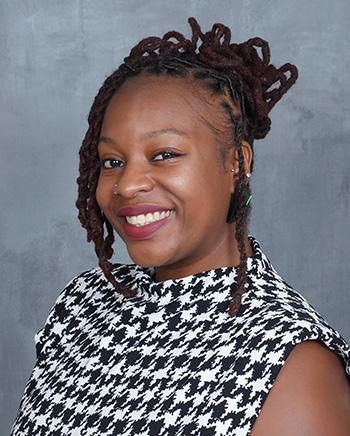 Feeling like you don’t belong – not even to yourself…
Feeling like you don’t belong – not even to yourself…
It happens when you don’t have the opportunity to explore who you are outside of your roles and responsibilities.
When you’re a girlfriend, wife, or mother before fully understanding the type of person YOU want to be, you find yourself striving to meet others’ expectations … and feeling guilty that your efforts never seem to be enough.
It’s a recipe for low self-esteem and anxiety. And if you’re here, you realize that societal standards for cultivating happiness often fall short.
I specialize in supporting Black women grappling with these issues, helping them cultivate self-compassion, enhance their self-awareness, and discover how to fulfill their own needs.
What you’re dealing with now…
It probably started a long time ago – even before you were born.
Black people were socialized as property for centuries, so we must learn and unlearn soooooooooo much just to feel like we belong to ourselves. We often have the warped instinct to put others above ourselves – even to the detriment of our own well-being.
I understand how untreated trauma spills over from parents to their children … and how that cycle repeats over generations. You can trace it back to the plantations where our ancestors were trafficked.
As a Black woman working diligently to break some of my own generational curses, I understand what the descendants of formerly enslaved individuals are really up against when it comes to mental health.
 You need a deeper understanding of yourself.
You need a deeper understanding of yourself.
A big part of therapy is learning to let go of the shame and guilt of the things we feel responsible for but weren’t prepared to deal with by our parents. They couldn’t give us what they never had.
So, we often feel like we’re playing catch-up.
But as you understand yourself and your village better, you can move forward from the trauma.
That’s how you start passing down generational gifts instead of generational curses!
Learn to have difficult conversations.
When you’re not allowed to be disagreeable as a child, it’s hard to find your voice and assert your needs and preferences as an adult. You’ve probably come to think of being agreeable as being respectful … and your fear of disappointing your family as a duty you must carry.
You’re then puzzled when your partners, friends, and family don’t meet YOUR needs.
In therapy, you’ll cultivate a sense of empathy and assertiveness. Empathy keeps you from assuming the worst intentions from your loved ones, even when you’re hurt. It allows you to see them as fallible humans. This makes it easier for them to receive your messages when they feel understood. Assertiveness is equally important because it involves enforcing new boundaries, which can be challenging.
Difficult conversations are crucial to meeting your needs and making you feel more comfortable in your skin. Therapy gives you the tools you need to do that.
 As you feel more comfortable in your skin…
As you feel more comfortable in your skin…
You’ll make healthier decisions…
You won’t be plagued by the same old negative thought patterns…
You’ll stop being a people-pleaser and enforce boundaries that protect your well-being…
You’ll notice more intimacy in your relationships…
You’ll make more mindful decisions from your intellect instead of reacting from the pain in your psyche…
Don’t wait another minute to start living better!
Life is hard when it’s unfulfilling.
And, to be fair, it’ll be hard work to get to the point where you can live and enjoy life on your terms.
It’s hard either way, so choose your hard.
If you’re ready to heal and get to a better place, call me for your free 15-minute consultation: (708) 292-8339.
About Me
 My path to becoming a mental health professional…
My path to becoming a mental health professional…
I became a therapist because I believe it is my contribution to a larger revolution.
During my undergraduate studies, I encountered the Stanford prison experiment, which profoundly impacted me. I was fascinated to learn that the experiment was cut short because the situational conditions began to affect the participants psychologically: the guards became increasingly cruel, and the prisoners grew more subservient.
This led me to ponder the implications: If just six days were enough to alter individual psychological and behavioral patterns, what might centuries of the transatlantic slave trade have done to the psyche of our ancestors?
This realization fueled my passion for discussing generational trauma with Black individuals – to understand how our historical and situational conditions continue to shape our behavior and psychological patterns.
Some of my professional background…
I’ve been in the field for about a decade, working in domestic violence, coaching parents, supporting students in elementary and high school, and working in community health with those with severe, persistent mental illness.
I’m a Licensed Clinical Social Worker (LCSW), an ADHD-certified clinical provider, and a mindfulness coach.
No matter the setting, I’ve always worked diligently to empower my clients, build their self-esteem, and help them make healthier choices to live a more fulfilling life.
When I’m not doing therapy…
I practice yoga regularly. In fact, I’m a certified yoga instructor. I’m also an intermediate-level pole fitness dancer.
I have over 150 vinyl records. I also have a big movie collection. I love movies and took every film course I could in college. Pulp Fiction, Mulan, Dirty Dancing, and Basic Instinct are some of my favorites.
I enjoy doing puzzles and coloring.
I love to read. Sci-fi is my favorite genre; Octavia Butler is my favorite author.
